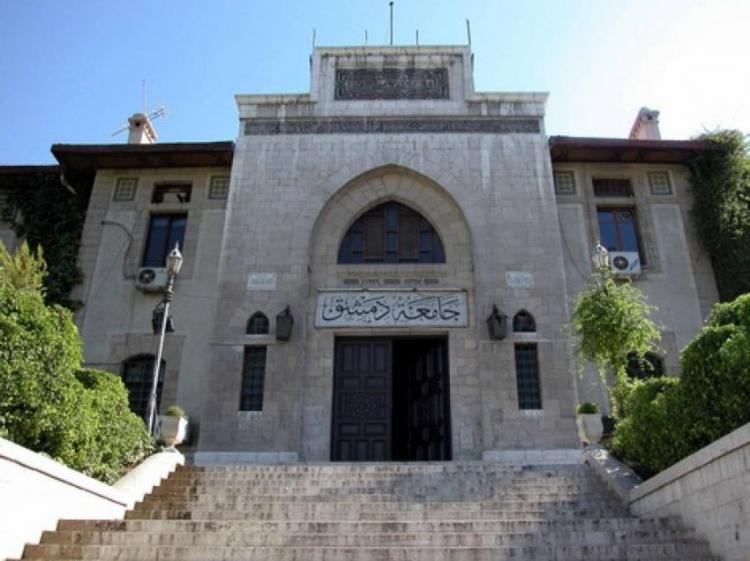DAMASCUS, Syria – (North Press) Students from northeastern Syria studying at Damascus University are experiencing difficult circumstances as a result of the interruption of money transfer companies between their regions and Syrian government held-areas since the implementation of the Caesar Act in the middle of June.
Transfer companies licensed by the Syrian government in the Autonomous Administration areas in northeastern Syria refrain from sending money transfers to government held-areas, while some companies have limited the amounts sent so that they do not exceed 100,000 Syrian pounds.
Economists in the region believe that Damascus’ government has been trying to prevent the flow of the Syrian pound from the areas outside its control to its regions in order to prevent further collapse of the pound. In return, it is trying to take the largest possible amount of dollars to Damascus through brokers and traders of funds.
University students depend on their families for financial needs, but the suspension of transfer companies has caused a big problem for these students in light of the cumbersome housing costs, personal expenses, and university fees.
Hanan Salim, a student at the Faculty of Pharmacy at al-Hawash University in Homs countryside, was fined for delaying payment of the university tuition due to the suspension of remittances between the city of Manbij and Syrian government held-areas.
"I told the university's affairs department the transfers are stopped, but they increased the premium, fined me, and threatened to refuse my sitting of the exam unless I pay my financial dues,” she said in an interview with North Press.
"My father tried to bring the money to me by himself, but at al-Tayha crossing in southwestern Manbij the Fourth Division of the Syrian Army refused to allow my father to cross, and the crossing soldiers threatened to confiscate the amount."
Last Thursday, the Minister of Higher Education issued a decision to prevent students from taking the exam unless the student paid all of his registration fees, and set a deadline of June 30 for registration for the students.
Student Yara Khalil said she had to borrow from her relatives to pay the rent for the room in which she resides in Zurafa / Wadi al-Masharea neighborhood in Damascus, after her family in the city of Kobani was unable to find a way to deliver money to her.
She told North Press: "My brother went to al-Haram company branch in the city of Kobani several times, and it is the only official company in the city that transfers money to government areas, but they told him the transfers stopped until further notice."
One of the employees of al-Haram Company, who preferred not to be named, revealed directives issued by the Central Bank of Syria and the Syrian Telecommunications and Post Regulatory Authority not to send or receive any transfers of more than 50,000 Syrian pounds to and from northeastern Syria.
Sipan Buzan, a student at Tishreen University in Latakia on the Syrian coast, said his relatives had to turn to the black market to transfer money to him after the transfers stopped from Kobani.
"They have deducted 15% of the amount as a transfer fee; they take advantage of your need for money and they increase the transfer fee," Buzan said.
In this context, a number of students confirmed that their families were able to send some money to them from Qamishli and Amude after they hesitated a lot at the branches of al-Haram Company in the two cities, but the company did not accept sending more than 50,000, Syrian pounds which is equivalent to about $20.
Some citizens also affirmed the al-Tayah crossings in Manbij countryside and Tabqa crossings in Raqqa countryside prevented the entry of more than 100,000 Syrian pounds with passengers to government control areas.
In early June, the Syrian Telecommunications and Post Regulatory Authority suspended a number of remittance companies after an unprecedented collapse of the Syrian pound at the time.
At the time, the authority asked the companies to provide them with all the receipts of the remittances sent and received during the past three months, to audit them and ensure that companies adhere to the instructions in force from the supervisory authorities.
(Reporting by Waheed al-Attar from Damascus, editing by Lucas Chapman)

